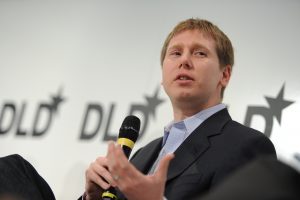Bitcoin mining is undoubtedly lucrative, having grown into a billion-dollar industry in just ten years. As the industry expands, the competition becomes fiercer worldwide, with China dominating the market. Digital Currency Group (DCG) is a global enterprise that builds, buys, and invests in blockchain companies. DCG is an investor in more than 160 companies worldwide. It's also the parent company of Grayscale Investments, the largest asset manager in the digital currency industry, Genesis, the world's first full-service digital currency prime broker, and CoinDesk, the leading blockchain industry media and events company.
This week, DCG announced a new subsidiary, Foundry, placing North America on the map for bitcoin mining. Foundry was quietly created in 2019 to meet institutional demand for improved capital access, market efficiency, and transparency in the bitcoin mining industry. With Foundry, digital asset miners and manufactures will have the resources to build, maintain, and secure decentralized networks.
The company currently offers three services for the mining ecosystem: equipment financing and procurement; mining and staking; and consulting advisory services. Mike Colyer, a former Core Scientific executive and veteran at GE will serve as Foundry’s Chief Executive Officer. DCG has pledged $100 million to mining bitcoin and other cryptocurrencies until 2021.
Despite the lucrative payouts associated with Bitcoin mining, Foundry faces tough odds following other North American ventures that have fallen on bad luck, with prominent crypto entrepreneur and DCG owner Barry Silbert acknowledging that, “the mining space is littered with the carcasses of failed mining efforts.” Bitcoin mining requires expensive equipment, significant capital, the right location, and access to cheap energy. Thus far, Chinese conglomerates have largely monopolized the industry by pooling resources and tapping into their efficient electricity.
While China’s competitive advantage cannot be ignored, Silbert is optimistic that he can repatriate Bitcoin production from China to the U.S. According to Coyler, accessing a new generation of energy-efficient mining equipment, while providing a transparent business culture in what is notoriously an opaque industry, is the key to Foundry’s success. Although China remains a strategic competitor, Foundry will still rely on Bitman and other Chinese companies to supply mining equipment until such time that American companies are producing their own.
Coyler and Silbert claim that DCG's broad network of contacts, along with its deep experience in the crypto industry, will let Foundry succeed where others have not. “We are a business built by miners for miners, and we are partnering with entrepreneurs who share our mission of advancing the industry and creating a decentralized mining ecosystem” shares Coyler. Inexpensive electricity remains crucial despite the company’s confidence. As such, Foundry is launching operations in locations of affordable and plentiful power, including Georgia, Kentucky, North Carolina, upstate New York, British Columbia and Quebec.
























